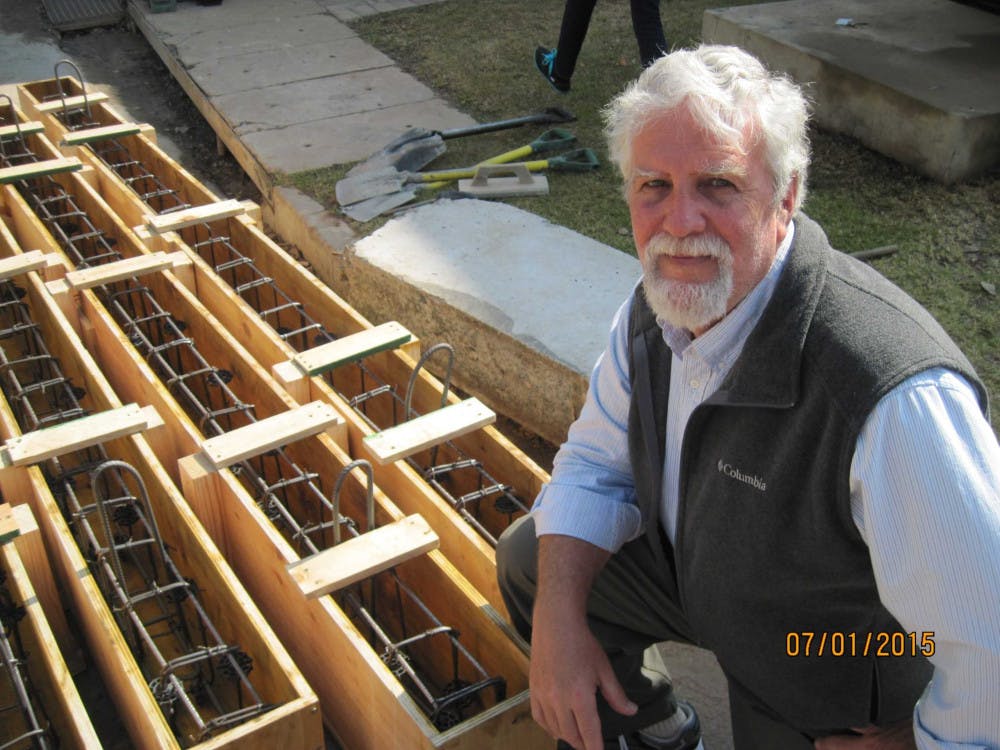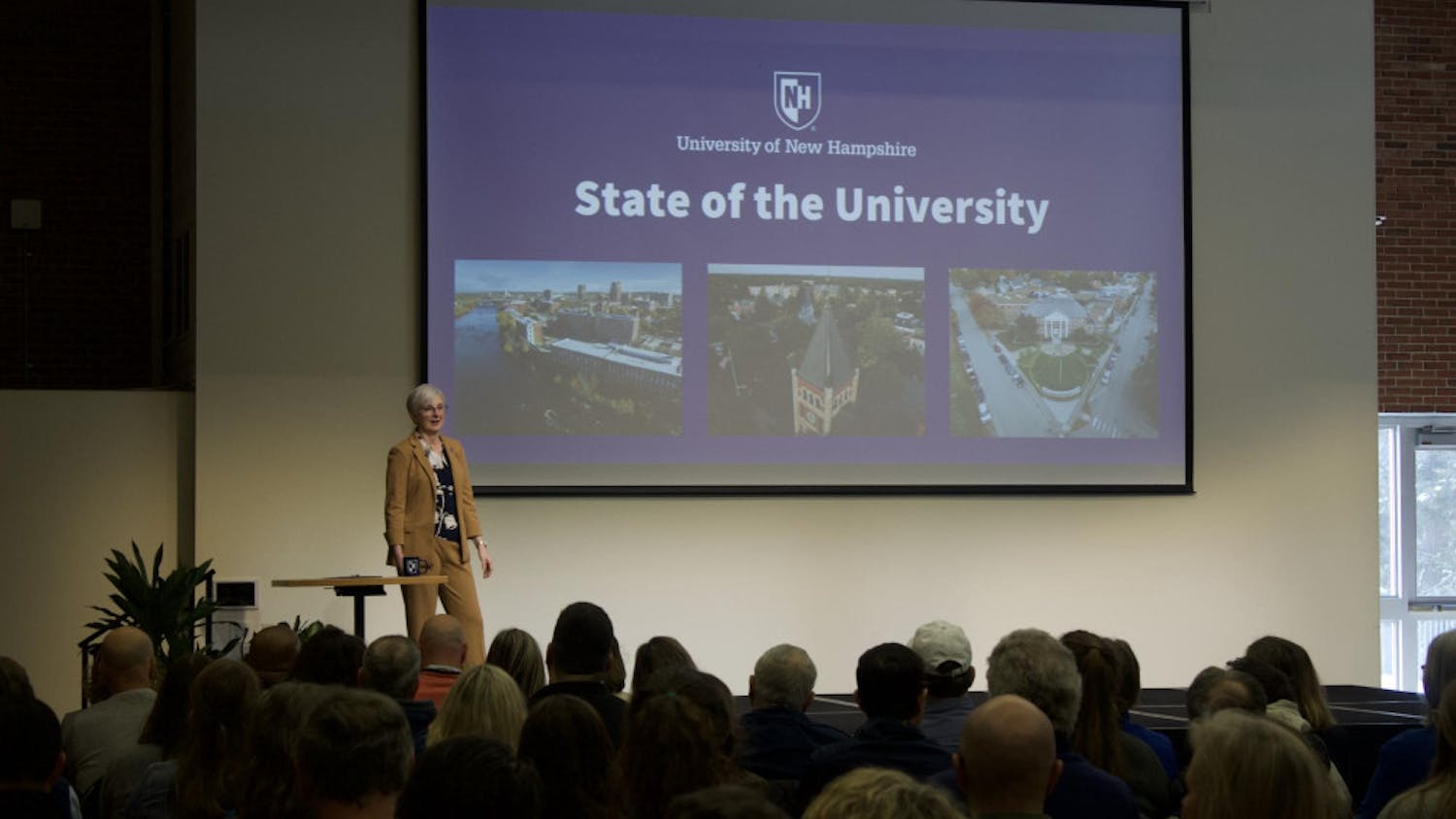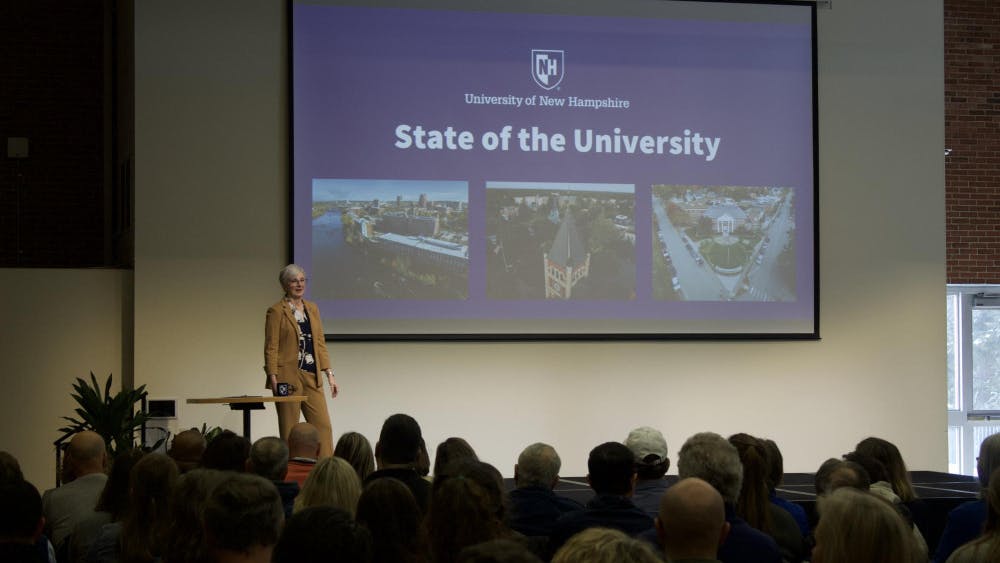Dr. Robert Henry, an associate professor who teaches in the department of civil and environmental engineering within the College of Engineering and Physical Sciences (CEPS) at the University of New Hampshire (UNH), received the 2020 New Hampshire Engineer of the Year award this past Wednesday. The award was given to him as part of other awards imparted by the New Hampshire Society of Professional Engineers (NHSPE), at the 69th Annual Engineering Week Award Banquet and Exhibition.

Henry, self-identifying as the longest-currently standing faculty in the department, began at UNH in Sept. 1980. He spent many years prior working in the state before his Ph.D. as a licensed professional engineer, consulting on industrial projects.
He returned to academia “on a whim,” he said. He earned a Ph.D. from the University of Pennsylvania, where he received both his master’s and bachelor’s degrees. UNH is the first and only academic institution he has worked for as both an educator and as an administrator. From 2001 to 2011 he was an associate dean for CEPS.
Over the years here, he has been involved in education beyond the courses he teaches. He has helped establish a STEM science, technology, engineering and math (STEM) summer camp, UNH Tech Camp, and has researched engineering education. While a professional, he helped with education initiatives put forth by professional engineering societies.
This outreach and education interest are long-held: “It started back when I was a senior in college. We had senior projects…myself and five other seniors developed teaching tools for a high school physics class,” he said. The tools focused on physics applied to an engineering topic.

In the early 2010s, Henry was approached by the parent of one of the students attending UNH Tech Camp, who wished to have Henry’s help in creating a STEM summer camp in South Africa, where the parent and their family is from.
“Within a year [from that initial inquiry] we had a camp set up in South Africa,” Henry said, speaking extensively of the camp. The camp is geared towards young women and girls, as “In South Africa women are not viewed as having engineering as a career for them. This individual was interested in fighting that stereotype.” Since the camp began five years ago, Henry has also brought two UNH students to help with the camp.
These two students represent a small percentage of the students he’s taught.
“In 40 years, I’ve probably had 4,000 students,” he said.

Many of these students remained in New Hampshire after graduation, who may have influenced his recognition as Engineer of the Year. Yet, Henry was hesitant to create a direct cause-and-effect relationship.
“I don’t know what my impact is,” he said. He noted the careers of his students range from CEOs to professional engineers in a variety of fields. “I’ve provided some of their education.”
For at least 25 years, Henry also proctored the exam required to be licensed as a professional engineer in the state of New Hampshire, which is given by NHSPE. “I’ve been involved with [the society] from the very beginning.”
Earning Engineer of the Year is done through an anonymous nomination process that begins in November of the preceding year, according to nomination guidelines. These guidelines explicitly emphasize that the nominee should not be aware of the nomination.
“A jury with a representative from each engineering society in NH makes the final selection,” Sam Fortier, the president of the society, said via email. “It’s a confidential process, so there is no public information on what set Dr. Henry apart from the other nominees.”

Fortier provided the list of 10 organizations, which do not include NHSPE, that are part of that selection process. All are engineering-focused organizations, most being New Hampshire branches of national organizations.
Henry knew of his status as Engineer of the Year before the awards banquet, but he admitted that at first, he thought that he was not truly receiving the recognition—that his colleagues were pranking him. When he did realize, he did not let the recognition go to his head.
“It’s a funny feeling. I’m very appreciative. It’s humbling to say the least,” he said.












